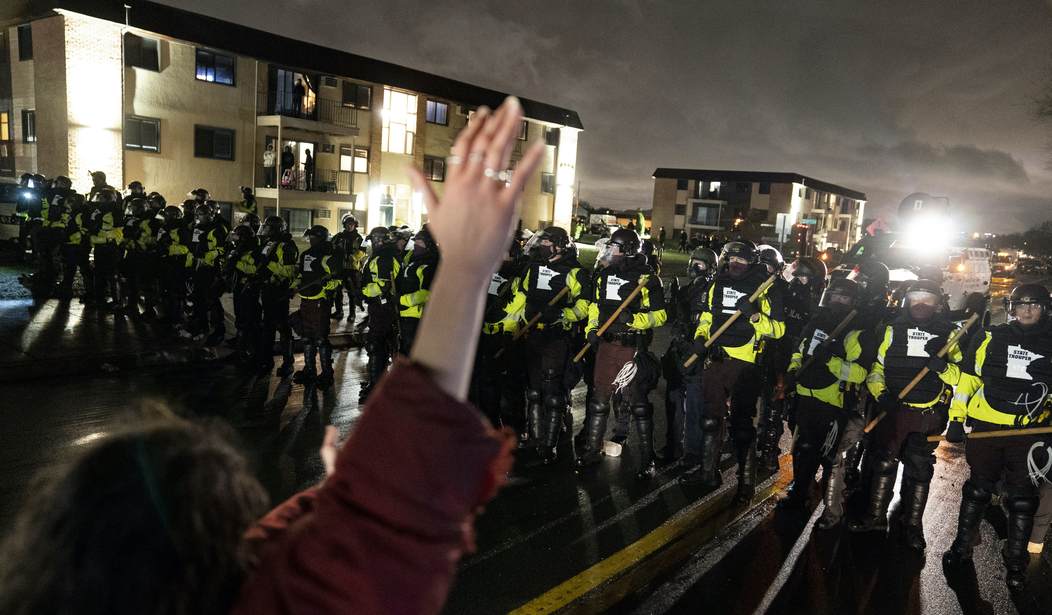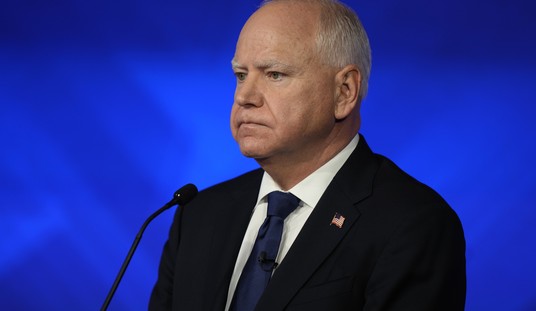Who really has privilege in our society today? Is it whites? Is it blacks? I'm talking about cultural privilege and legal privilege. I want to talk today about the issue of privilege. Not so much the issue of personal privilege because when we think about our lives we could be privileged in this way or that.
I think back, for example, I'm very privileged to have good parents, parents who loved me and took care of me. And I suppose since not everyone has that, that's a kind of privilege.
When I think of someone who's a very good athlete, they're privileged to have those inherent skills, to be tall enough or strong enough or fast enough and that's, I suppose, a kind of personal privilege. We can also speak of national privilege. It's a privilege to be born in America. That's why people try so hard to have an American passport because an American passport counts for more than any other kind of passport, at least today, around the world, that may not last forever, but it is true now.
So there's American privilege, but I want to talk about privilege in America, and I want to speak about the kind of two kinds of privilege that I think really matter. The first is cultural privilege, the way that you were seen in public space, the way that you're treated by others, by the culture, the way you're represented in culture. And the second is legal privilege, which is the law bending in your favor in various things.
Now, I think it's very clear that although we hear interminably about white privilege. The fact of the matter seems to be that when you look at the episodes of all this stuff going on in our culture and if you look at our laws, it's very clear that we have a lot of black privilege. Yes, black privilege, I know the term itself will cause some people to find it a little bit jarring, but black privilege here simply means that there is a cultural and legal preference for blacks.
Recommended
Let's start with the legal privilege. There are no laws in the United States that I'm aware of that prefer whites over blacks, not one. Whereas, there are innumerable laws, you couldn't even count them, that benefit blacks and other minorities over whites. Let's start with laws that involve college admissions, preferences for blacks and other minorities over whites. We also have laws that give preferential treatment in terms of jobs and promotions and government contracts, and there are certain types of even COVID Relief packages that have been structured in such a way that they give legal preferences to minorities over whites, and this permeates our whole society everyone kind of knows about it, everyone accommodates to it. And, there it is, it's, it is a form of legal discrimination which another word for discrimination is of course privilege.
Now we can turn to cultural privilege, and this is a big question, but it's kind of easy to investigate by zooming in to some particular incidents. So let's just look at all these incidents of shootings that have been going on around us, which I've been watching kind of carefully. I just see a tweet here by Senator Tammy Baldwin,
"Today I pay my respects to Capitol Police Officer Billy Evans who was tragically killed, doing his job protecting the Capitol, my heart goes out to family and friends," blah blah blah. He was tragically killed by whom? Here Senator Baldwin is too reticent to say, why, because the killer was a black guy. He was a nation of Islam guy, and therefore the passive voice kicks in, he was tragically killed. If he had been killed by a Trumpster, by a white guy, we would have been horrified to note that a white Trumpster did this. So, somehow for whites, they're always granted agency, they're held responsible for what they do, particularly the bad things they do. When it comes to blacks there's a desire to sort of paper over that.
Look at the perpetrators of the carjacking of the Uber driver, by the way, a hard-working guy, an immigrant, he gets, he gets tasered and killed, his car crashes, and it's two black teens who do it. What happens to them, answer, pretty much nothing. They're getting a kind of sweetheart plea deal, and they're going to avoid all prison time, they don't even go to prison at all. Well, what do you call that if not black privilege? If that again had been two white guys who did that, I don't think they'd be getting the same deal. If two white guys had murdered a Pakistani immigrant can you imagine the torrential press coverage? So both on the cultural front and the legal front, you notice that the fact that these teenagers are black is key to the fact that they get off easy.
Now I turn to the Daunte Wright killing, a killing I'll discuss in a little more detail later in the podcast, but here I just want to note that when I look at the media portraits of Daunte Wright, they're almost devotional. You see for example a picture of Daunte Wright with this little kid. Now I've seen other pictures of Daunte Wright with a gun. I read, and again I've got to go across the, go over to Britain to find this out, Daunte Wright had a warrant out for his arrest for attempted aggravated robbery charges after choking and holding a woman at gunpoint to rob her $820 in rent money. Wright and another man were trying to basically rob this woman. And so, and Daunte Wright knew there was a warrant out for his arrest. Now when the cops stopped him, he called over to his mom and he goes, Oh yeah, they're pulling me over for my air freshener hanging out on my rearview mirror, obviously lying to his mom, and of course, his mom reports that to the media which then goes unbelievable the guy's being pulled over for an air freshener. No, he's not being pulled over for an air freshener. There's an outstanding warrant for a very serious crime that he is under investigation for. So again, the fact that this Daunte Wright is treated as if he were some kind of angel who was merely being harassed by these cops, you know, that would not be the case if Daunte Wright wasn't black.
So the essence of being black here is you, you essentially become exonerated for what you do, even if you're a really bad guy with really bad stuff behind your belt, that gets papered over in the media coverage and you also seem to get legal preferences. By the way, why do we know the name of the cop who shot Daunte Wright, but we still don't know the name of the cop who shot Ashli Babbitt. Well, I happen to know the name of that cop, but you really have to dig to find it. By the way, the guy is Lieutenant Michael Leroy Byrd. That's the guy who did it but you'll almost not see that in a single media report, you know why, because he's black. So if you see a black cop with a gun shooting a white woman through the neck, the media knows that really doesn't really fit our narrative, our narrative is white cops killing blacks, so they erase it, they don't show it, if they mentioned it, they try not to mention it at all, they've tried to essentially protect this man by not mentioning his name, and I noticed, essentially how quickly he's been exonerated.
Where's the trial, where's the investigation, where's the report on why this was a justified killing. Ashli Babbitt after all was unarmed. So what I'm trying to get at here is that if you're black and on the left, you really have a sort of pass in our culture. You can be a home invader and a guy whose passing out counterfeit bills, you can be shot up with drugs, but you'll still get five funerals, you'll still get a gold casket, you'll still get the Democratic leadership going down on one knee. You can loot a store, you can burn a building or a church, you can jump on top of a police car, you can block traffic and bridges, you can harass diners, you can pull people out of their automobiles and haze them and beat them, you can go into private residences and bang things, you can go into an Asian American nail salon and harass the owners and the people who work there, you can run, through groups like Black Lives Matter, a massive extortion scheme where you're collecting all this money to fight social justice, and then you go by five homes, you go essentially invest in property all over America, in the Bahamas and really the media stew they're not going to report it because it's okay, why, because you have black privilege.
You can even shoot members of your own race or other races, without the slightest fear that it will be described as a hate crime or reported widely in the newspapers. There's not going to be any national brouhaha about it. The only time you'll be in the newspapers if your hardened criminal with a long rap sheet, and a white cop pulls you over. That's the only time you're going to find yourself in the newspaper, and you're going to be lionized as a victim, and the other guy's going to be the one who, you know I could go on with this but I think you get the picture. The way you can sort of settle this matter about privilege is simply to ask this question. In the old days 100 years ago, you had a lot of mixed-race people, part white part Black, who tried to pass as white. Why, because the cultural privilege and the legal privilege was in doing that, in pretending you may say to be white, and there's a whole bunch of literature and novels, James Weldon Johnson's "the Autobiography of an Ex-Colored Man," and many others that talk about this.
Charles Chesnutt's "the House Behind the Cedars," literature describing, if you will, mixed race blacks, passing as white because they're light-skinned enough to do that. They felt that's the way for me to live a normal life. Well, today it's the opposite if you'll notice, you hardly have any whites who pretend to be black, but you have lots of mixed-race people who pretend, who pretend to be white, but you have lots of mixed-race people who now move in the black direction. I'm thinking not just of the Rachel Dolezals who sort of says, you know, we're really white, but say I'm black, you have that in order to advance professionally perhaps in her case, but you also have people like Obama, or Kamala Harris, Megan Markel. People who are mixed race, but who decide to emphasize the black side of their identity. Why, because they know that culturally, politically, in terms of advancing their career, it's better for them.
So the bottom line of it is, there are certain respects, I suppose, in which there is white privilege. I think the most important respect is the privilege of the past. And so whites, for example, have greater wealth than blacks and that's passed on I guess from an era of white privilege, but at the same time, I think we are fools not to deny the reality that in today's America, in terms of culture and in terms of the law. Black privilege is also a very obvious reality.
























